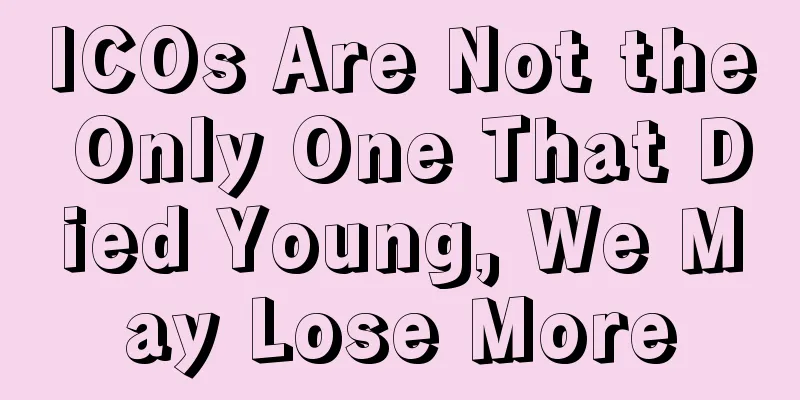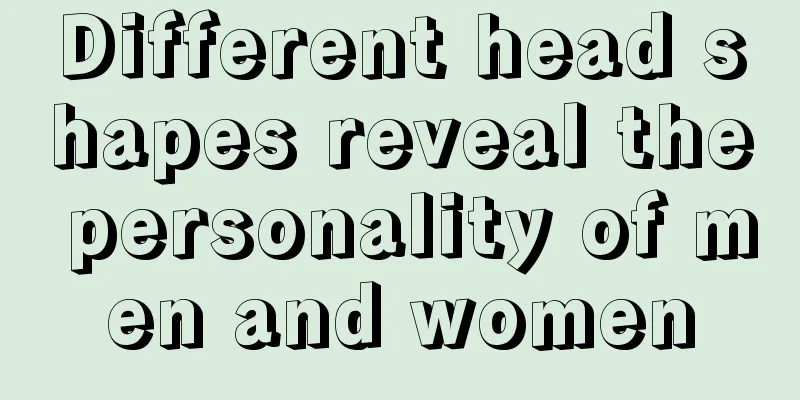ICOs Are Not the Only One That Died Young, We May Lose More

|
After ICO was banned by the central bank, I saw a lot of applause in my circle of friends. I didn’t know that the myth of getting rich quickly by ICO had caused such public resentment. The headlines of major media outlets were all about the central bank banning ICO and various digital currencies plummeting. But I guess few media will tell you that although there was a sharp drop on the 3rd day after the new policy was released, on the 5th, Bitcoin rose by 10% and Ethereum rebounded by nearly 40%. On the morning of the 8th, the price of Bitcoin was still around 29,000 yuan, and Ethereum was basically around 2,000 yuan. Although ICOs frequently make headlines, the number of people who actually buy and sell digital currencies is only a few hundred thousand, and it is generally believed that there are less than 100,000 active traders. Although the sudden wealth effect in recent months has indeed attracted the attention of the elderly, the main force in the market is still the geeks who bring their own dry food. What is confusing is that among those who criticize digital currencies as bubbles and scams, few of them hit the point. They probably know nothing about digital currencies, and they have not invested or lost a penny, but they are furious, but where does their anger come from? Recently, whether I was having dinner with my former colleagues from the law firm or meeting with my classmates who majored in law in college, I found that we, a group of liberal arts students who are well-read, know almost nothing about digital currency and ICO. So, every time I played the role of an evangelist, explaining them one by one with the most popular metaphors. I talked until I was foaming at the mouth, but they seemed to understand. This is not surprising, because I started to learn about Bitcoin four years ago, studied blockchain a year ago, and then tried to understand electronic currency and got in touch with ICO. To this day, I am still an elementary school student. To be frank, it is really difficult for liberal arts students to understand and recognize digital currency because their knowledge reserve is a major drawback. I found that whether it is blockchain or ICO, when you communicate with people with a technical background, they will be full of energy, but when you communicate with liberal arts students, they often look at you with disgust, as if they saw someone going astray, and look at you with sympathy. In fact, the essence of blockchain is not complicated. It is to establish a network that everyone can trust through many technologies including cryptography. The key to the problem lies in the understanding of these technologies. A person who has learned technology will understand why these technologies can indeed guarantee fairness, openness and credibility. However, it is difficult for a person who does not understand technology to understand the weight and significance of consensus mechanisms, smart contracts or hash encryption, and this is where the disagreement arises. Some people say that Bitcoin is a belief. So what is the basis of this belief? It is a paper by Satoshi Nakamoto and a collection of technologies. If you don’t understand the technology, you will naturally not form this belief. It is precisely because of the existence and high technical threshold that blockchain technology has been developed for many years, but there are still many people who know it, but few who understand it. Although many people have become fans, there are still many professional haters. Coupled with the excessive wealth effect of ICO, people’s disgust has been aggravated. For anyone, a 10% return in a year is already quite impressive. But suddenly I heard that ICO can actually earn dozens or even hundreds of times the return in a short period of time. Isn’t this crazy? Bitcoin and Ethereum have also skyrocketed several times or even dozens of times in just half a year. Isn’t this robbery? People generally have a kind of mentality that they are hostile to things that are different and unusual. Blockchain, Bitcoin and ICO are still too unfamiliar to most people. Facing the sudden surge, simple experience reminds us that these things are either treacherous or stolen. There are also some people who did not catch up with the train to get rich quickly. Although they are skeptical and eager to try, they are also envious and jealous. For many ordinary people, this may be the second time they have seen Bitcoin on the headlines. The first time Bitcoin made the headlines was in 2013. That year, Bitcoin climbed to a high of nearly 7,000 yuan. Many experts exclaimed that Bitcoin was a huge bubble. As the central bank cracked down on Bitcoin transactions at the time, the price of Bitcoin plummeted. Four years later, when Bitcoin once again made headlines, everyone was surprised to find that the highest price of Bitcoin had exceeded 30,000 yuan. Even though the price plummeted after the new central bank policy, the current price is still 29,000 yuan. In other words, the low point after the 2017 crash is more than three times higher than the high point in 2013. While the onlookers are happy to see the sharp drop, are they also wondering why virtual currencies can still achieve such a high increase when experts do not recognize them and regulators do not support them? Although many experts and scholars have criticized Bitcoin from various angles, they still have no reasonable explanation for where the high price of Bitcoin comes from. Doubts about new technologies are inevitable in the process of human progress. The Internet industry took five or six years to explore from its rise in 1994 to its bubble burst in 2000. At that time, many people did not understand the Internet and thought it was a big scam and bubble to make money. Good technology speaks for itself. The Internet bubble at least educated a group of users and cultivated a group of talents. A few years after the Internet bubble burst, giant companies such as Google, Amazon, and BAT emerged rapidly and are still leading the trend today. There is indeed some madness and insanity in the out-of-control of ICO, but what stimulated this bubble was not lies, but expectations that were overdrawn in advance.
In fact, industry insiders also have mixed feelings about ICOs. Just like the Sword Sect and the Qi Sect of the Huashan Sect in Jin Yong’s novels, in the blockchain industry, there are also chain circles and currency circles. In August, when I was with a blockchain activist in Shanghai, I jokingly called him a cryptocurrency celebrity. However, he corrected me seriously and said, “No, I’m actually in the blockchain circle,” fearing that the word “cryptocurrency circle” would drag down his status. In my opinion, most people in the blockchain circle are idealists. They often work outside the spotlight, silently typing lines of code to implement blockchain technology in real projects. They are the pioneers of blockchain. When we visited QuChain in Hangzhou in June, we found that this company, founded by a group of PhDs from Zhejiang University, had a solid technical accumulation in the field of blockchain and had an impressive determination. At that time, ICO was not so popular, but some digital currencies had already shown signs of skyrocketing. Dr. Li Wei, CEO of QuChain, told us that "QuChain only focuses on technology and will never touch the currency until regulatory policies are issued." In the following months, many teams with far inferior technology to QuChain used various ICOs to issue coins. I even doubted whether QuChain could really hold on without touching the coins. However, until the central bank banned ICOs, the QuChain team did not touch the coins. This kind of determination is admirable. The group that is really active in the spotlight are basically the celebrities in the cryptocurrency circle, such as Li Xiaolai. These people are born with the physique of Internet celebrities. They may have a firm belief in digital currency, but they will not miss any opportunity to make quick money. The blockchain and cryptocurrency circles are of the same origin, and the value of the cryptocurrency circle depends largely on the work of the blockchain circle. However, for a long time, as the wealth effect of the cryptocurrency circle has become more prominent, it has created a siphon effect on the talents of the blockchain circle. On the one hand, people work hard every day to write code and earn hard-earned money; on the other hand, they can attract everyone's attention and double their money in minutes by telling a story. Few people can resist such temptation. Today, few people doubt the value of blockchain, but it will take a lot of hard work to create real value. A senior blockchain engineer at Dianrong.com said, "Many blockchain codes are messy and many components are pieced together. If blockchain applications are to reach commercial standards, they will need to undergo a lot of modifications or even rewrites." It is the complexity of blockchain implementation that has led to many blockchain projects being much ado about nothing, because most people’s performance is not as good as their boasting.
When ICO first emerged, although I also felt that there were many problems, I was generally optimistic. For many blockchain teams, it is quite difficult to get things done, especially without the support of a godfather or capital. Companies that can afford to support teams to work on blockchain are often strategically oriented and ready to burn money; venture capital often selects blockchain projects because they feel that the TO C business model is unclear and the TO B model lacks explosive power. Blockchain is a technology with a bright future but a tortuous road. These two logics are obviously not conducive to blockchain innovation. There are only a handful of excellent blockchain underlying development teams in China that can get capital support. With ICO, at least many grassroots teams have been given opportunities. Some talented teams, if they come up with a promising technical idea, can get support from others by publishing it in the community. This geeky community model is undoubtedly a commendable financial innovation. If used properly, it can undoubtedly promote the rapid progress of blockchain technology. After the rise of ICO, our team read dozens of white papers and visited more than a dozen teams. We have to admit that there are not many reliable projects. However, there are still some projects that really impress us. Even if they don’t launch ICO, as an investor, I will still invest in them, such as a project called Loopring. Currently, the price of Bitcoin in foreign exchanges is much higher than that in China, and it is very troublesome to exchange different digital currencies, which is obviously not in line with human nature. The technology that Loopring is trying to develop allows you to bid globally when buying and selling digital currencies. You can buy Bitcoin at the lowest price in the world at the moment, or sell Bitcoin at the highest price in the global market at the moment, which breaks the price difference between different trading platforms. Once Loopring's technology is implemented, it will be equivalent to stock trading in the real world. If you sell 1,000 shares of Agricultural Bank of China, 300 shares can be traded on the Shanghai Stock Exchange and 700 shares can be traded on the Hong Kong Stock Exchange. Traders can choose time priority or price priority. How amazing will this efficiency be? Moreover, according to the current situation in the secondary market, many investors can obviously withdraw their coins, but they would rather hold on to them. This shows that many people still believe in the value of the Loopring project. Loopring is not exaggerating. When the blockchain stock exchange BEX returned its coins after ICO, many people even left a message in unison, "BEX, if there is still a chance, please leave me a copy, I still support BEX." ICO has a rapid rise and fall in China, but it shows a possibility that through market competition, good projects will be recognized in the market, and bad projects will be abandoned by everyone. The bubble that rises in the market will be blown away by the competition of survival of the fittest. As the central bank said, "The actual amount of ICO funds raised for project investment is less than 1%", but after all, there are still 1% of people working hard. Just like the thousands of O2O and P2P websites before, only a few of them finally succeeded, and most of them died. As a legal professional, I also know that there is only a thought difference between an unregulated ICO and illegal fundraising. How similar is this to the P2P back then? Before the regulation came out, many people were engaged in illegal fundraising under the name of P2P. Later, with the intervention of the regulator, the P2P industry has now grown to a trillion-yuan scale and has become a special force for inclusive finance. If P2P is considered to have a troubled fate, then ICO is simply a premature death. The regulators do not seem to have the same patience for ICO as they did for P2P. Although ICO is far from being comparable to P2P in terms of the number of people involved, the amount of money involved, and the systemic risk, the ending is abrupt. According to the requirements of the central bank, "no organization or individual shall illegally engage in token issuance and financing activities" and "no so-called token financing trading platform shall engage in" matters related to ICO. The wording is decisive, "shall not" rather than "suspend" or "stop", which means that a period is drawn instead of a comma or semicolon, which is the legendary "one size fits all". While the People's Bank of China took a one-size-fits-all approach, regulators in Canada, Hong Kong and Singapore opened the door to ICOs. The Autorité des marchés financiers (AMF) of Quebec, Canada, not only confirmed that ICO projects are securities, but also accepted ICO companies into the regulatory sandbox. The Hong Kong Securities and Futures Commission stated that if ICO activities are conducted in Hong Kong, they may be regulated by the Hong Kong Securities and Futures Ordinance. The Monetary Authority of Singapore (MAS) stated that if digital tokens fall within the definition of securities in the Securities and Futures Act (SFA), token issuers must report to MAS and register a prospectus before issuing such tokens, unless exempted. Even the US Securities and Exchange Commission (SEC), which has a tough attitude towards ICOs, has stated that digital currency is a security, and its issuance is illegal without SEC registration or exemption. " There is no country that does not believe that ICO needs to be regulated, but everyone’s idea is how to put a tight ring on Monkey King instead of suppressing him under the Five Elements Mountain forever. After the "one-size-fits-all" ICO, the real victims are not the 1% of people who are still working hard, but the long-term competitiveness of the entire Chinese blockchain ecosystem. Although China is a big country, it does not represent the world. Countries not only compete in economy and technology, but now even in regulatory policies. For a long time in the past, many foreign blockchain projects would come to China for ICO roadshows, and China has thus become the global hub of blockchain technology. In the future, not only will foreign teams no longer come for roadshows, but it is estimated that many Chinese blockchain teams will consider going overseas for roadshows. At the same time, the Chinese public has also lost the opportunity to contact and invest in excellent blockchain projects. If the Chinese are still a bit alarmist, then listen to other people’s voices. The picture at the beginning is in the United States across the ocean. When Naval Ravikant, an angel investor of Uber and Twitter, heard that the Chinese government banned ICOs, he excitedly tweeted, “ICOs need regulation, sure, but banning ICOs altogether is a hugegift to Silicon Valley and its resident financiers.” Through rectification, the spread of ICO risks can undoubtedly be prevented. However, we hope that the regulators can give ICO a chance to rectify its name and allow ICO to move forward with the tight control of regulations. After all, the central bank’s regulations also mention that “no organization or individual may engage in illegal token issuance and financing activities.” Can this be understood as there will be legal token issuance and financing activities in the future? Well, I sincerely hope that day will come. |
<<: Kaspersky: New malware can infect personal computers to mine cryptocurrencies
>>: New Bitcoin regulation is coming? We may need some differentiated ideas
Recommend
Bitcoin mining is being driven out, and wind farms will be built in the Sahara Desert
Mining business is condemned by everyone The city...
Is it auspicious or inauspicious for a woman to have an overbite? What does it represent?
As one of the traditional physiognomy techniques, ...
From Bitcoin computing power to hard drive capacity, has the trend of mining changed?
Early Bitcoin mining enabled many ordinary people...
Where is the lucky mole of a woman?
Where is the lucky mole of a woman? Mole in hair ...
The activation of segregated witness by altcoins drives the price up sharply. Litecoin wants to help Bitcoin break the deadlock in expansion.
Golden Finance News - On April 26, the latest dat...
The disruptor: Bitcoin
The selling of Bitcoin in China reached its peak ...
How does it analyze the life span of people with strong and dense teeth and the facial features of different teeth?
Everyone hopes to live a long life, and the lengt...
The fate of a girl with a mole on her lower lip
In mole physiognomy, wherever a mole appears has ...
CoinNetwork blockchain contract and digital seal solution – digitizing paper contracts and physical seals
1. Overview The CoinNet blockchain contract and d...
Does a woman with a small mouth look poor? How will her fortune be in her later years?
Poverty is something many people want to get rid ...
China UnionPay and JD Finance announced successful blockchain cooperation test, deploying cross-regional and cross-operator alliance chain
On May 9, China UnionPay's official website r...
Guo Jingjing's facial features analysis
Guo Jingjing's facial features analysis In 20...
How to trim eyebrows for wealth
How to trim eyebrows for wealth Among the five fa...
Antminer X3 Review
In March 2018, Bitmain, a well-known cryptocurren...
Draft of the General Principles of Civil Law: Virtual property and digital currency will be protected by law in China
Author : Amber Dingding On June 27, the 21st meet...









